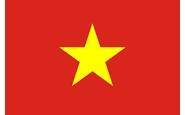Government/Policy

September 12, 2017
Vietnam Circumvention Ruling Coming Oct. 17
Written by John Packard
Over the weekend, we received a message from trade attorney Lewis Leibowitz regarding the status of the Vietnam circumvention suit. This is the one where the domestic steel mills filed a circumvention suit alleging China is circumventing the duties on cold rolled and CORE (corrosion resistant) steels by sending substrate to Vietnam and having it converted there before shipment to the U.S. as Vietnamese material.
Lewis told us, “Commerce announced today that it will issue a preliminary determination in the Vietnam circumvention proceedings (cold-rolled and corrosion resistant steel) on Oct. 16. The decision will be publicly available on the next business day (Oct. 17). The Commerce Department previously announced that the final determinations will be issued on Feb. 15, 2018.”
One of the core questions at issue is how to define “significant transformation,” when steel is converted and in the process changes from one product to another. For example, when hot rolled substrate is converted by “cold rolling,” thus reducing the thickness of the steel and the surface. Hot rolled then becomes cold rolled. The same happens when cold rolled steel is converted to galvanized steel by adding zinc to the surface of the substrate (limited changes to thickness).
The expectation is that the U.S. Department of Commerce will take some action, probably against Chinese substrate being converted into another product as a means of sending it to the United States. However, as one steel mill executive told SMU, “My take is the petitioners will ‘win’ something on Vietnam. But the only way to shut Vietnam off is to go with a straight dumping case, something the mills should have done a long time ago. But they decided to back the wrong horse with the Section 232 instead.” Vietnam has made a change away from Chinese substrate, so there may be no impact of a decision in favor of the domestic mills, he added.
We will learn more on Oct. 17 when the public is made aware of the DOC preliminary recommendation.
Written by: John Packard, John@SteelMarketUpdate.com







